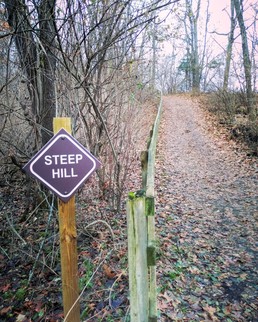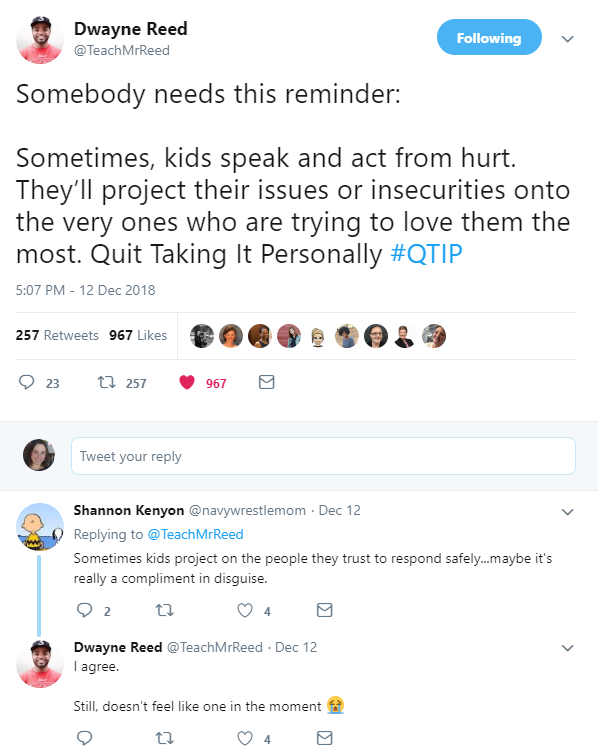|
Riding the Waves: How I'm Surfboarding My Way to Break By Lauren Nizol My seven-year-old made up a song when he was four that sticks to this day. He likes to stand up when we pull into our driveway and pretend that he is surfing while he sings, “I’m surf-boarding, if you’re happy to know!” We really don’t know how it started, and admittedly--it’s a little weird since we have never surfed and we live in mid-Michigan (not exactly a local attraction for us). And I’ll be the first to admit that the song’s meaning is a little muddled (is he happy he’s surfing or does he want me to be happy that he is? Either way---it’s become an endearing quirk). But then, it struck me that my son’s jingle is a reminder that our students will each march to the beat of their own “Pa rum pum pum pum.” Our job is to find ways to respond to them with glad tidings and joy. We can’t look at behavior that seems out of place and immediately dismiss it. As the MTSS coordinator in my district says---”all behavior is communicating something.” Giving Grace to a Grinch Earlier this holiday season, my husband and I took our boys to see The Grinch. It was a lovely update, complete with a detailed character backstory about a boy Grinch who never felt included in Christmas. Cue empathy and understanding for a character with despicable behavior. At the end of the movie (SPOILER ALERT), in spite of the Grinch stealing Christmas, the Who-ville community still finds it in their hearts to welcome him to the dinner table. The Grinch is so moved that he changes his behavior and for the first time in his life, he enjoys Christmas. This month, I’ve noticed some buzz on eduTwitter and NCTE Village about how teachers can gain perspective when students exhibit challenging and "grinchy" behaviors. Many teachers are quick to refer to these weeks between Thanksgiving and Christmas as a long haul (I know that I do). We get very worried that a snow day (at least in Michigan) may thwart our well-laid out plans. We stress about reviewing enough before the assessments. And we are working hard to not bring planning or grading home with us over break. Sometimes when we are busy barreling through the curriculum, we forget that some of our students are stressed about other things: college admissions, navigating the holidays with divorced parents, or maybe worrying about being invited to hang out with friends over break. I know that sometimes I forget that I process stress as an adult; our students, though, don't always have these skills. (I have to remind myself that I've had at least twenty more years on them to practice managing stress). Andy Schoenborn shared on NCTE Village that it helps for teachers to "Remember you are teaching students, not a curriculum. Be responsive to them, not it." When teaching becomes focused on what students need rather than what we want to teach, we are able to connect with students who act out. After all, the Grinch stopped being "grinchy" when someone finally noticed he was in pain and included him. On that same note, Jennifer Wolfe puts it best when she explains: "Remember: No child wakes up in the morning hoping to fail. Somewhere, down inside, they want you to notice them. Help them. Smile at them. Love them." The most important way that we can extend grace in our classrooms is to realize that pain is not a place where any kid wants to be. Our role as teachers isn't to take away that pain, but we can provide a space as inclusive as Who-ville. #QTIP (My New Favorite Acronym) Last week, there was a great thread that started on @TeachMrReed’s feed. When students present challenging behavior, @TeachMrReed remembers to QTIP: Quit taking it personally.  This thread resonated with me because I can remember back to my first year of teaching when one of my students got so angry that he threw a chair. It's been so long that I can't recall now what he was angry about. When the counselor came to debrief the situation with me, she told me something that sticks with me to this day---kids present challenging behavior where they feel safe. Rarely is the behavior we see in class about us. Changing my response to this perspective doesn't mean it doesn't burn a little when a student acts out, but it helps me to ride the waves and respond with kindness. Our students are not just students. They are sons, daughters, grandchildren, brothers, sisters, and friends each with complex lives, experiences and behaviors. Remembering this has helped me to see the people sitting before me. The Climb (we're almost there!) I know that it might feel like a steep hill to climb to break. But, this week more than any, we need to be okay with how our students are surfing and riding the waves. Some of them might be completely geeked and full of excitement. And others might be anticipating a difficult break ahead. Our classrooms must be safe enough so that all of our kids can surf into break. And we need to greet them happily while they do it. Coming in January 2019! New Year, New Posts. Stay tuned for posts about how to talk to parents about supporting writing at home and ready-to-use literacy strategies for tackling challenging texts and topics.
3 Comments
|
AuthorLauren Nizol is a literacy interventionist, writing center director, and National Writing Project Teacher Consultant who loves books and takes too many pictures of trees when heading for the woods with her family. Archives
September 2020
Categories |
Photos from wuestenigel (CC BY 2.0), shixart1985, lorenkerns, wuestenigel (CC BY 2.0), hans-johnson


 RSS Feed
RSS Feed
